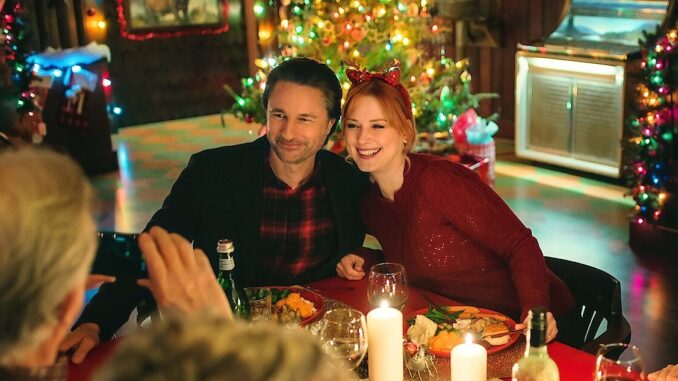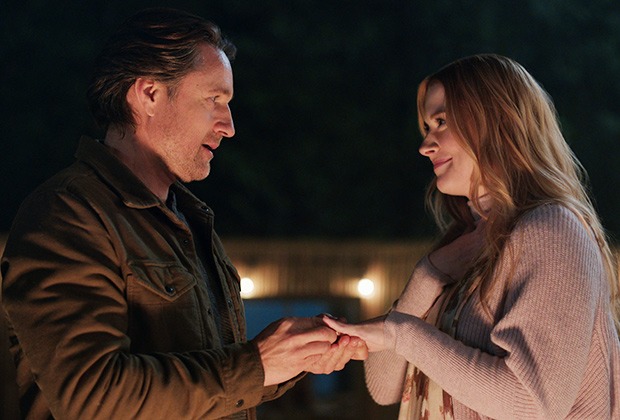
Why Virgin River’s Creators Broke Our Hearts in Season 5 (and What Comes Next)
Introduction
Ever watched Virgin River Season 5 and thought, “Seriously? Why did they do that to us?” You’re not alone. The creators of the show have finally spoken out, and let me tell you—they had reasons. In this deep dive, we’ll unpack everything: from narrative strategy to character arcs, emotional payoff, and what it all means going forward. Ready to explore the heartache and the hope? Let’s do it.
1. The Art of Emotional Investment
Why Traumatic Storylines Stick
Strong storytelling builds emotional stakes. When you’re invested, tragedy cuts deeper. The creators leaned into that to make the payoff matter—because if no one cares, why bother?
Creating High Stakes for Believability
In small-town drama, big life events need to feel real. By introducing pain, they mirror life’s unpredictability. It’s not melodrama, it’s context—and it fuels engagement.
2. Character Growth Through Crisis
How Crisis Shapes Characters
Crises strip us to our core. For characters like Mel and Jack, tragedy in Season 5 was a crucible—testing their resilience, values, and growth. That’s where memorable arcs come alive.
Why Evolution Requires Friction
Growth without friction is flat. The creators clearly used the tragic event to propel characters into richer emotional territory. Without that shock, Season 5 might’ve felt stagnant.
3. Building Toward Redemption and Hope
Tragedy as a Precursor to Healing
Sure, heartbreak hurts—but it opens the door for redemption. The creators likely planned this jolt to reset the emotional compass of the show, preparing us for a comeback.
Setting Up Future Storylines
Season 5 didn’t just drop a bomb; it laid groundwork. The ripple effects—relationships tested, faith strained—give upcoming seasons so much potential. The best dramas lean into aftermath, not just events.
4. Balancing Fan Expectation and Surprise
When Fans Expect Safety, Impact Increases
We love Virgin River for its warmth. That makes jolts more powerful. The creators knew that by subverting expectations—going there—they’d get maximum emotional traction.
Avoiding Predictability
Predictable storylines lead to yawns. Injecting tragedy was a bold move to keep viewers hooked—because pain sells, empathy wins eyeballs, and unpredictability spikes online buzz.
5. Realism, Not Just Drama
Honoring Real-Life Challenges
Mental health, grief, accidents—they’re not clickbait, they’re life. The creators leaned into realism, giving the show an emotional honesty that resonates with viewers who’ve felt loss or fear.
Staying Grounded
It’s easy to sensationalize. They didn’t. By treating the tragic event with authenticity, they earned emotional credibility—making the heartbreak feel earned, not forced.
6. The Ripple Effect: Community & Relationships
How Small-Town Bonds Grow Stronger
In crisis, tight-knit communities lean in. That’s a core Virgin River theme. The tragic event organically strengthens bonds—Marvellous material for future episodes.
Emotional Bonds That Hook Viewers
Watching beloved characters support each other? That keeps us watching. The creators tapped into the show’s emotional DNA—not just shock, but comfort in community.

7. Dramatic Pace and Narrative Momentum
Keeping Momentum Alive
By mid-season, drama needed a jolt. The tragic event serves as a pivot—resetting arc momentum and reengaging viewers eager for resolution and hope.
Setting the Scene for Climactic Turns
When things fall apart, there’s nowhere to go but up—or deeper. That tension, left unresolved, drives anticipation. It’s smart storytelling mechanics dressed in heartbreak.
8. Emotional Truth vs. Escapist Fantasy
Walking the Line
Virgin River balances comfort with narrative realism. The creators didn’t go dark for darkness’s sake—they mirrored emotional truth, trusting readers to sit with discomfort while still offering hope later.
The Power of Emotional Contrast
Juxtaposing pain with the show’s usual warmth amplifies both. We feel heartbroken more deeply because we care—and we care because we feel seen.
9. Actor Performances That Needed Space
Pushing the Cast to Shine
High-impact scenes let actors flex real emotional muscle. The tragic arc likely gave the performers a chance to elevate—and their performances created viral buzz and emotional reviews.
Earned Reactions Equal Earned Fitness
When actors believably echo heartbreak—and that heartbreak is well-written—the viewer response is visceral. The creators invited that—and they got it.
10. The Business Angle: Buzz, Emotion, and Streaming Metrics
Why Controversy (of a Kind) Helps
Drama drives trending talk. Social grief, theories, speculation—it drives watch time, shares, and engagement. Creators know: heartfelt heartbreak sells.
Strategic Emotional Peaks
Peak moments generate peak retention. By front-loading tragedy, they secured tune-in, conversation, and emotional investment—all good for streaming algorithms.
11. Audience Catharsis: Tears That Heal
Why We Cry—and Keep Watching
Crying in TV isn’t weakness—it’s connection. The show invited tears so it could offer comfort later. Catharsis is emotional currency, and the creators spent it wisely.
Safe Space for Emotional Release
We log in expecting cozy comfort. A shake-up makes the comfort that follows feel earned. Creating that arc gives viewers both heartbreak and hope.
12. Teasing Redemption Without Spoilers
Leaving Room to Heal
The creators didn’t just shock—they left space to rebuild. That suggests future seasons will be about healing, reconciliation, and emotional rebuild—not just fallout.
Hints of Renewal in Mel’s Journals
Subtext clues—Mel’s journaling, refrains about starting over—they placed breadcrumbs that Season 5 isn’t the end of the story, just a painful checkpoint.
13. Aligning with Genre Expectation—and Then Disrupting Them
Rom-com Town, But Not Always Romance
Fans expect cozy romance. The creators delivered romantic tension—but reminded us this genre can hold complexity, too. Sometimes light gives way to weight—and that contrast matters.
Subverting Expectations, Respectfully
They didn’t betray the tone—they stretched it. That sort of narrative risk pays off if it deepens emotional connection, rather than shock alone.
14. Preparing for the Emotional Renaissance
What’s Next in Healing
Expect slow burn redemption: community gatherings, open hearts, new paths. The tragedy sets up a healing arc that could be the emotionally satisfying storyline yet to come.
More Authentic Bonds to Explore
Season 5 wasn’t just heartbreak—it was a crucible for deeper friendships, romantic evolution, and personal reinvention. All prepped for future triumphs.
15. Why We’ll Remember Season 5… Forever
Because We Felt It
When a show pulls real tears, it sticks with us. The creators aimed for that. Grief, love, community—they hit deep. That’s storytelling staying in the marrow.
Season 5 as Defining Turn
This season shook the familiar foundation—and in doing so, transformed the show. The heartbreak echoes onward, changing how we’ll watch—and feel—going forward.
Conclusion
There you have it—Virgin River’s creators didn’t add a tragic blow in Season 5 to be cruel. They did it to deepen connection, trigger growth, spark buzz, and steer the show into richer emotional territory. If hearts were broken, it’s because the story trusted us to break—and then to come back stronger with it. As we look ahead, healing, hope, and a rebuilt Virgin River feel closer than ever.
FAQs
Q1: Why was the tragic event necessary in Virgin River Season 5?
Because it elevated emotional stakes, deepened character arcs, created narrative momentum, and triggered conversation—making the story more compelling.
Q2: Is there hope for redemption in Season 6?
Absolutely. The tragic moment sets the stage for healing arcs, renewed relationships, and emotional comeback.
Q3: Did fans react badly to the tragedy?
Reactions were intense—but that’s exactly why creators inserted it. Emotional investment means passionate feedback, and that fuels fandom.
Q4: Could the show have avoided the tragic twist?
They could have, but it would risk complacency. The heart-wrenching moment reenergized the narrative and reengaged viewers.
Q5: How do creators balance cozy vibes with painful storylines?
By anchoring pain in realism and following it with emotional safety, empathy, and community. That creates contrast—and depth—without losing the show’s warm soul.